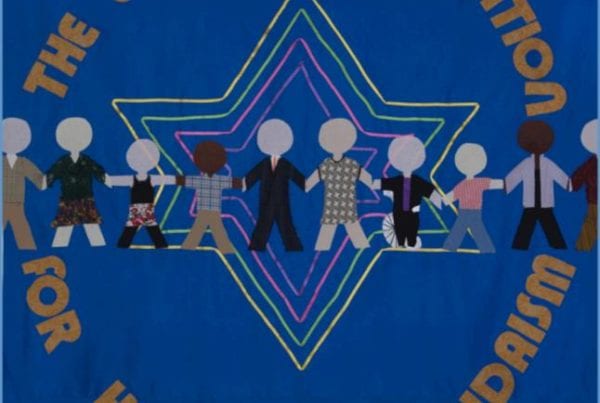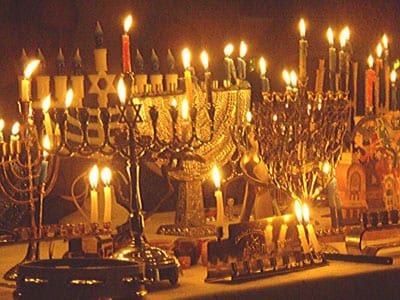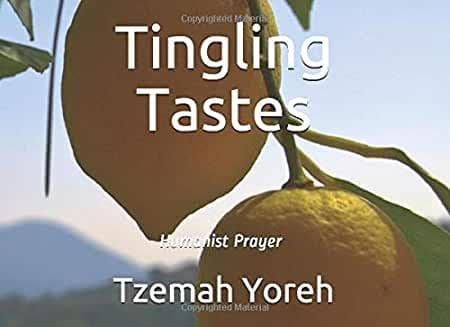LEGACY
Alice Kaplan
Many years ago, I was given a handout. It must have been at a workshop I was attending but now, my memory fails me and I cannot put its origin in context. It is a piece of white copy paper, 8 and ½ by 11 with no title and no attribution. In an appealing computer font, in paragraph format, it is a listing of loving wishes. From the first reading, I was moved by the values that are expressed in this writing which seemed to me to be what a parent or grandparent would say to a beloved child to give her a guideline for a worthy life.
I read and reread this handout, always being touched by its contents. I stored it in a file in my desk which I labeled “Legacy Books for the Children”. My idea was that I would create a book comprised of these guiding concepts to give to each of my 5 grandchildren upon their graduation from college. I would make it physically beautiful by using creative computer techniques which I would learn from a workshop at the Apple store. With the oldest grandchild two years away from college graduation, I’m getting close to beginning this project and hopefully, to seeing it through to a fruitful conclusion.
When Rabbi Schweitzer asked me if I would talk to the congregation about Legacy, you can imagine how that resonated with me. For years, I had been thinking about the Legacy project. This Yom Kippur talk presented me with an opportunity to pursue the project, to delve more deeply in to what legacy means and what I hope my legacy will be. I needed to go beyond the generalities of the message on the white paper and examine my legacy with more specificity.
I am defining legacy in personal terms. We all hear the word, legacy, bounced around in a broad way. We wonder about President Obama’s legacy—about Nelson Mandela’s legacy. What does the word mean? It means what you leave behind after you are gone. It’s what people remember about you. It’s how you influenced others in a lasting way. People in the public eye—heads of state, ceo s of big corporations, scientists, writers, artists,—these individuals have a concrete measurement for how they influenced others. Strong teachers leave a legacy of learning in their students. For most of us who lead more private lives, it’s not so tangible. We have to stop and think about how we are living our lives, changes we might want to make or what we have already done that might fall in to the category of legacy.
Reflecting on my legacy has prompted me to think about the legacy that was passed on to me from my grandparents and parents. FAMILY is front and center. Every Sunday, throughout my childhood, I would go to my grandmother’s house where her 5 children and their nuclear families gathered. Sisters, brothers, aunts, uncles, cousins all gathered—most often we numbered 20 or 25. The children played hop scotch on the large cement squares in the side yard. We explored the large, Victorian house with its dark back staircase and empty rooms on the top floors. The adults played cards, listened to music and talked. The visit always included a meal where we all sat around a large, oval table in my grandmother’s dining room, everybody helping, everybody talking, voices lively, sometimes about serious subjects but often lighthearted sharing. I believe that my connection to my aunts and uncles and those cousins to this very day can be traced back to those Sunday visits. The essence of those gatherings was family connection.
My mother’s love of books and reading was a strong aspect of her legacy to her children. From the earliest years, she took us to our local library every week, coming home with bags full of books. We witnessed the important place that reading had in her life. I picture her sitting outside on an early spring day, snuggled under a blanket, her face to the sun reading her latest book. She was a regular attendee at a book discussion group at the library long before book clubs were popular and mainstream. I could always be sure that one of my Chanukah gifts would be a book. Often from the Jewish Publication Society.
Being charitable and helping others was another thread in the tapestry of my parents’ legacy to me. A particular memory involves the help my parents gave to a French, Jewish family who had survived the Holocaust. After the war, this family –a father, mother and 3 sons, came to New York. My parents facilitated their resettling in our community on Long Island, helped the father start a business and offered their friendship and support.
If I were to write an ethical-legacy will tomorrow, what would I say? What would be the keynote? It would be the concept of giving back. It would put on paper what I have tried to set forth by the way I have lived my life: to connect to others—to interact in a supportive and empathic manner; to be helpful, whether by material support or acts of kindness; to work hard to keep family together; to be thankful every day for the good life I have and to remember every day the sadness, heartache and challenges of so many others. I would want my ethical legacy will to reflect my life long love of learning, to promote my profound belief that one is never too old to learn something new or build on what you already know, that the world is full of riches having nothing to do with money. I would want it to emphasize my optimism, my belief that despite the evil and hardship we see all around us, the world is a pretty terrific place and it’s our duty, our responsibility to get the most out of it for ourselves and do whatever we can to help those less fortunate improve their lives.
Focusing on these values led to my thinking about specific paths in my life that were framed by these underlying beliefs. Regarding love of learning, I returned to school on two occasions in my adult life. After being a stay at home mom for almost 15 years, I earned a masters degree in Library Science (now called Information Science). At age 50, I returned to school once again to get a degree in Social Work. I was not the only older student; but many of my colleagues grumbled about the academic work and hated that part of the program. In contrast, I enjoyed it. From childhood, I always liked school and I found that as a full fledged adult with 3 children and a very active life, I still liked it. I liked the stimulation. I liked learning.
Another significant and lasting experience in my life relating to my legacy is my involvement with Planned Parenthood. My volunteer work at Planned Parenthood of Nassau County in Hempstead, Long Island 25 years ago was the stimulus for my returning to school to get my Social Work degree. I wanted to be involved in helping others on a professional level. I have been on their team ever since, wearing many hats over the years. I established a Women’s Health library for the new building when the affiliate relocated in 1990. I worked in the counseling area, the education department, supervised the library and became a member of the Board—a position I still hold. I was lucky that Planned Parenthood gave me the opportunity to meld my background in library work and social work; it fit right in with the value I held about helping others.
I cannot address this subject without speaking about my late husband, Allan Kaplan, the father of my 3 children. We were partners for 46 years and of the same mind regarding our values and our connection to others. When it was time to determine the writing for the footstone of his grave, many e-mails flew back and forth among my children and me, trying to capture the essence of this man in fewer than 30 words. Imagine that challenge! After many drafts, we made a final decision. The words on his footstone read:
Husband, father, grandfather, brother.
Wise, generous, loyal and humorous.
He was a mentor to many.
He enriched the lives of others by the way he lived.
Once or twice a year we visit the grave. We read the inscription. We look at one another, smile and say “we got it just right”. We captured his legacy in 26 words.
Had he written an ethical legacy will, it would have been similar to mine.
Lastly, I would want my legacy to include the idea that life is full of surprises—often good ones—and that we should be open to them. I hope that my present life of happiness and contentment with my second husband, Jason Aronson, will serve as a message to my children and grandchildren—a message that says: be positive, be receptive, try new things, move on, be connected, be loving, keep learning and have fun.
Thank you, Rabbi Schweitzer, for honoring me today with your request that I give this talk.
Happy New Year to all of you!



